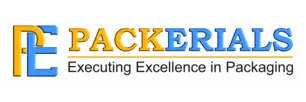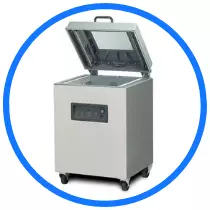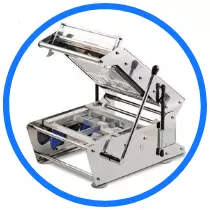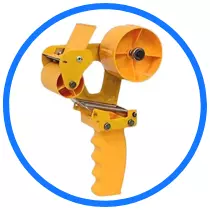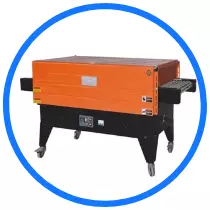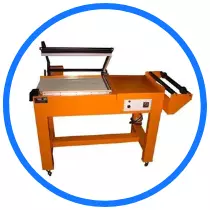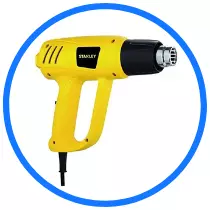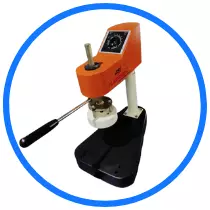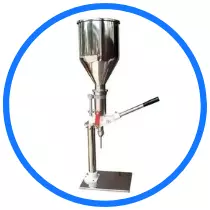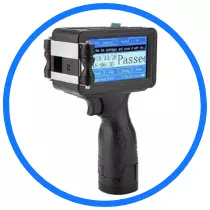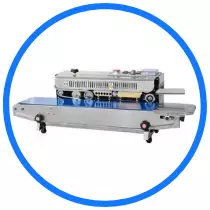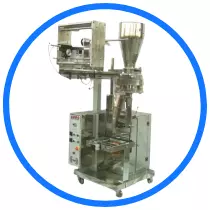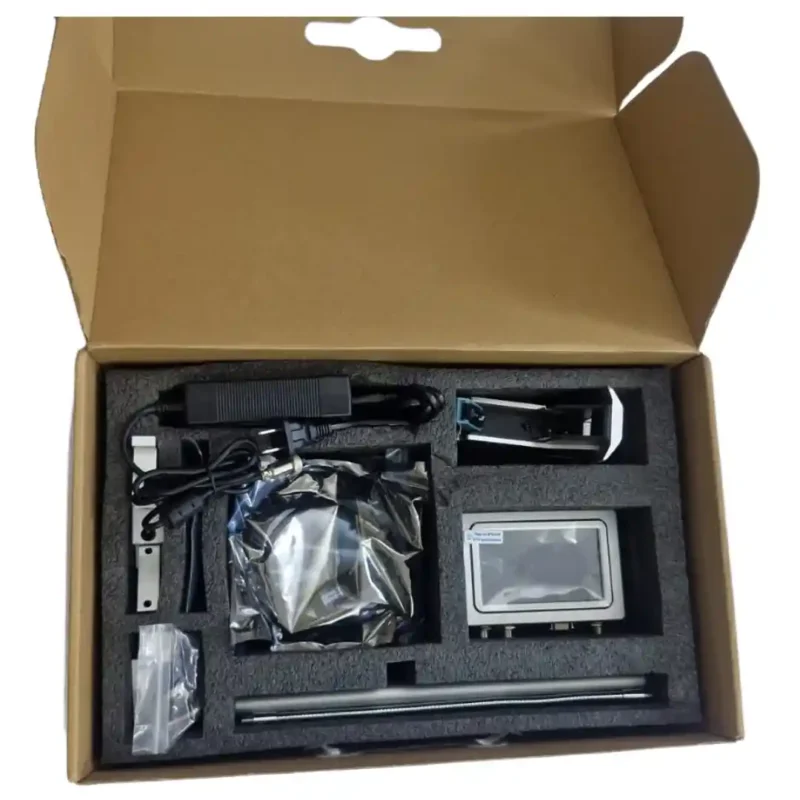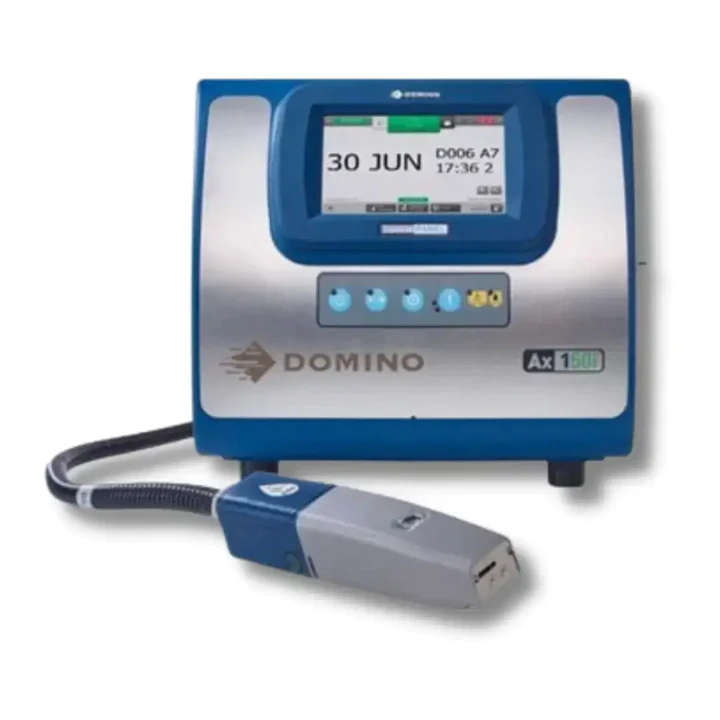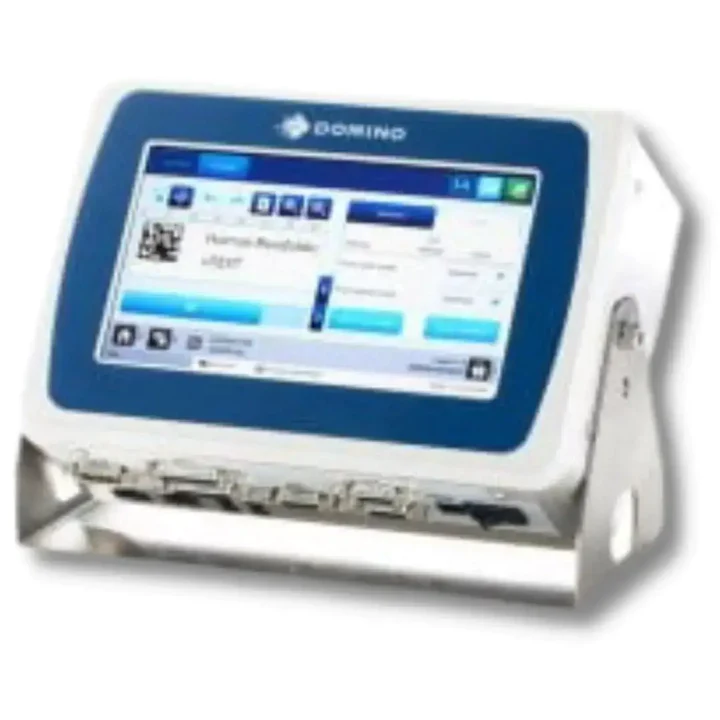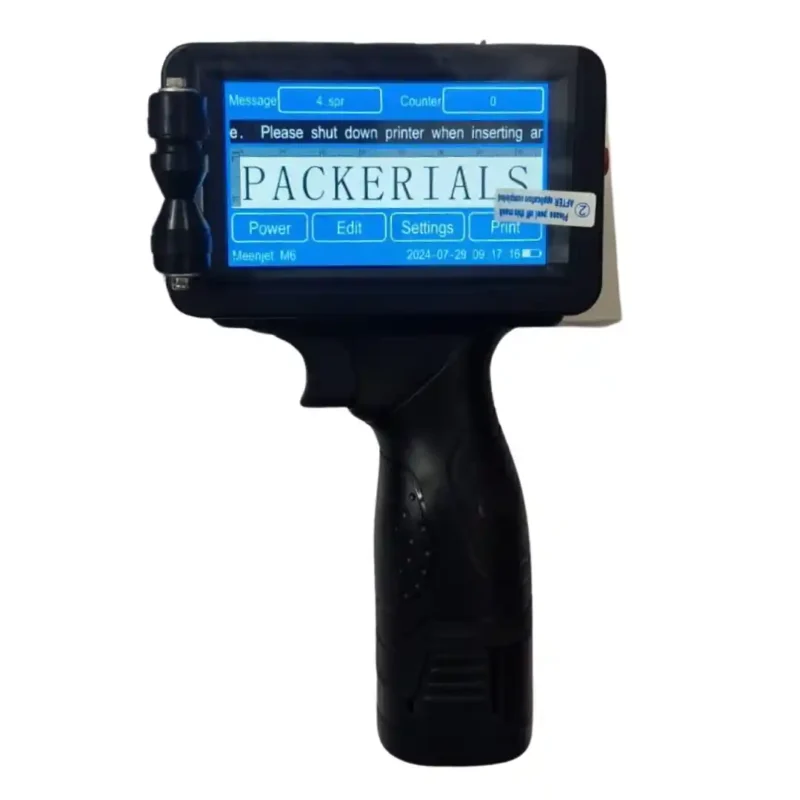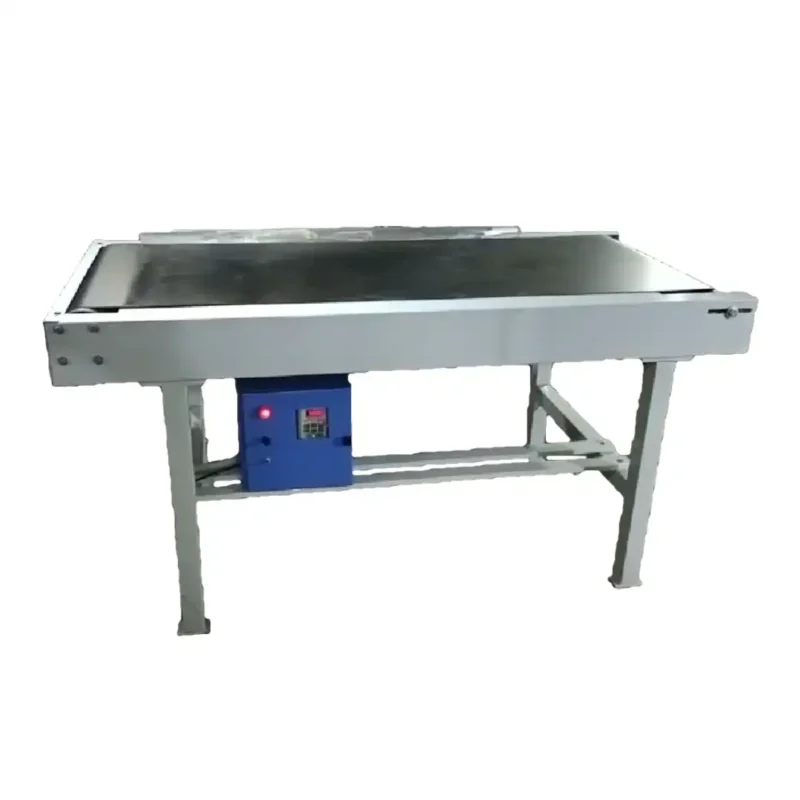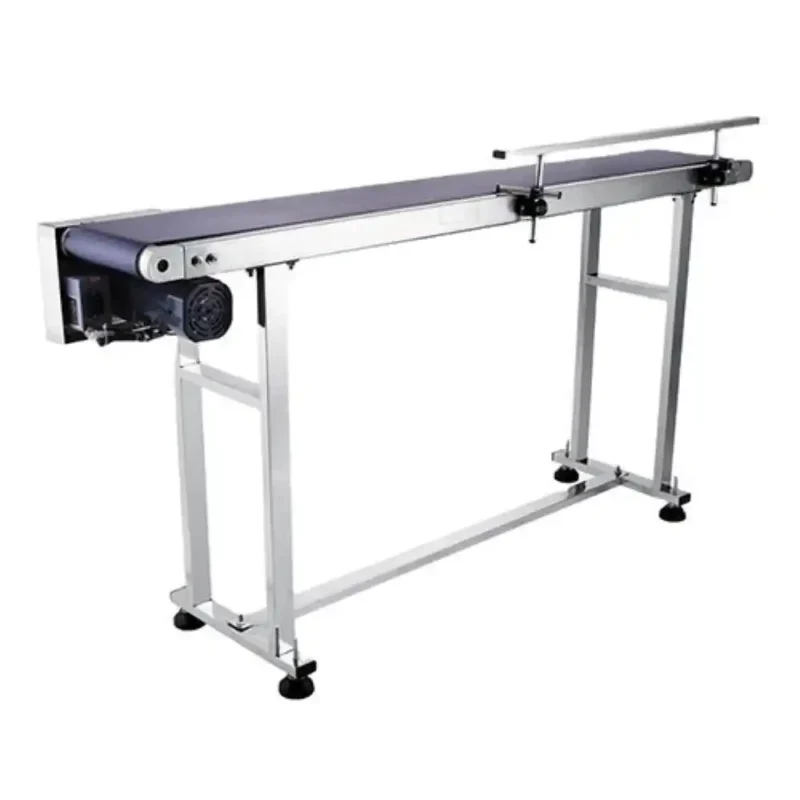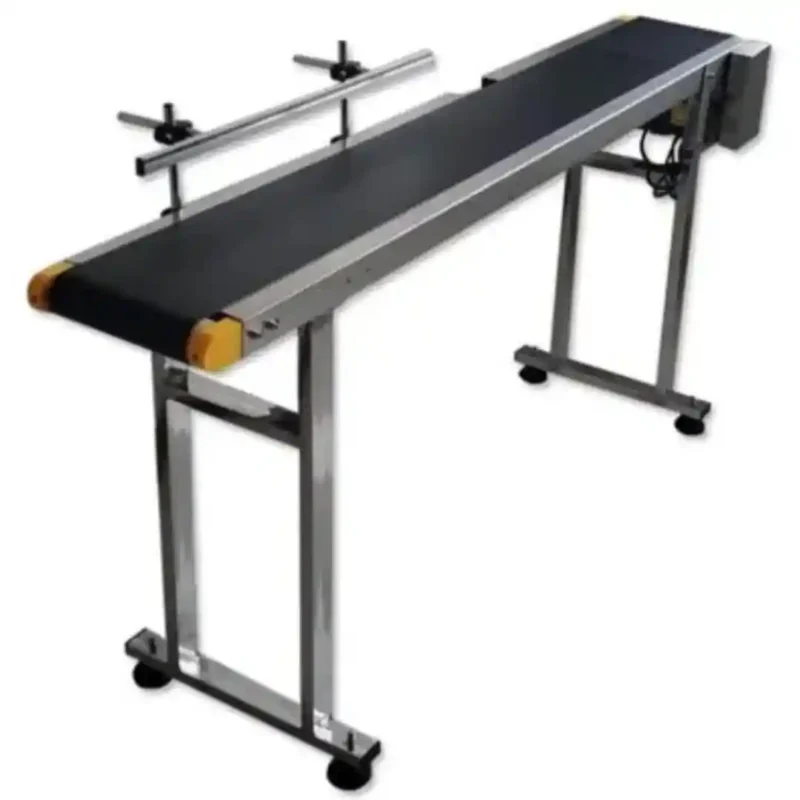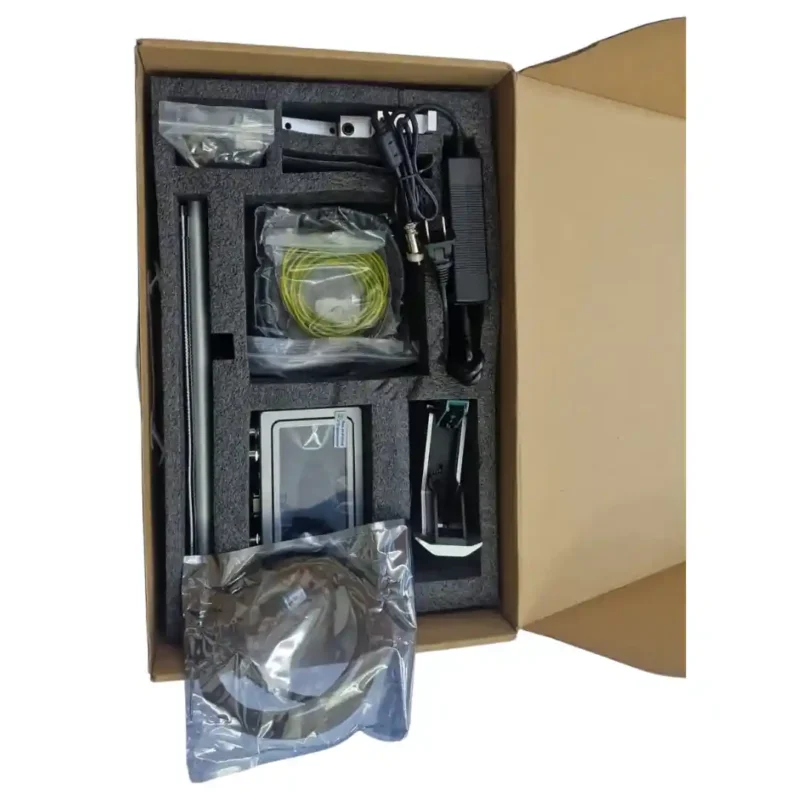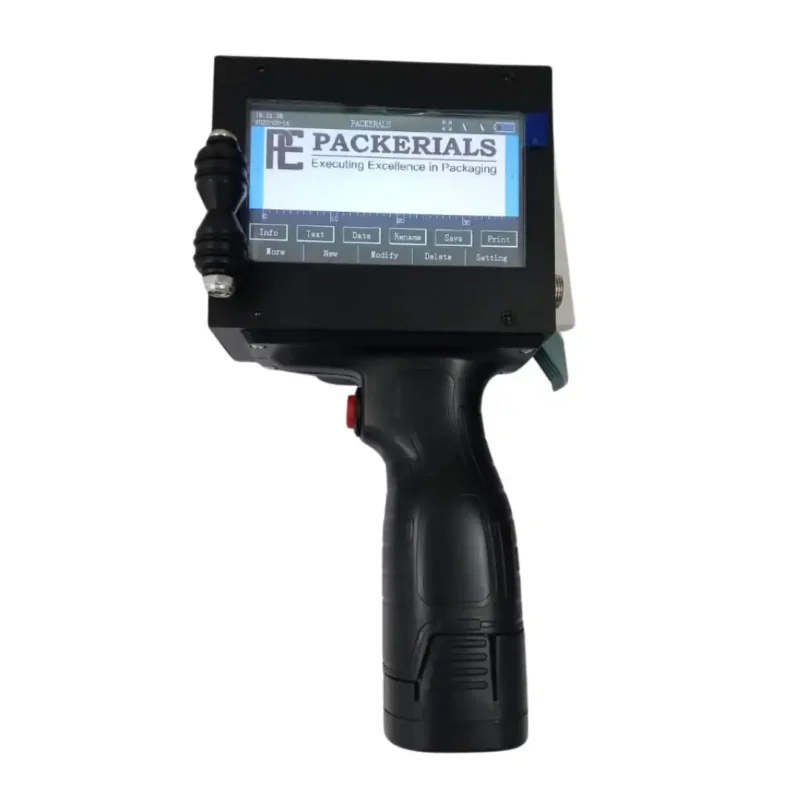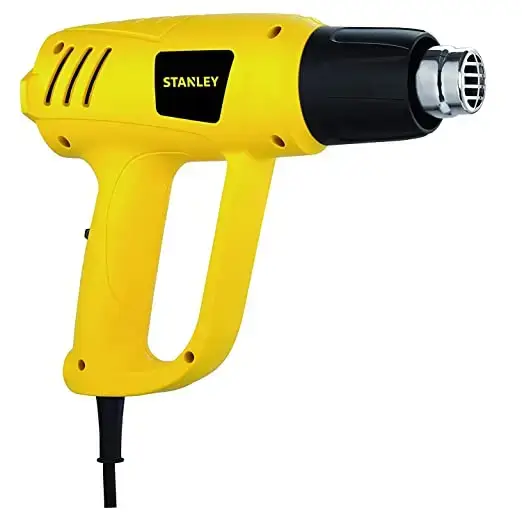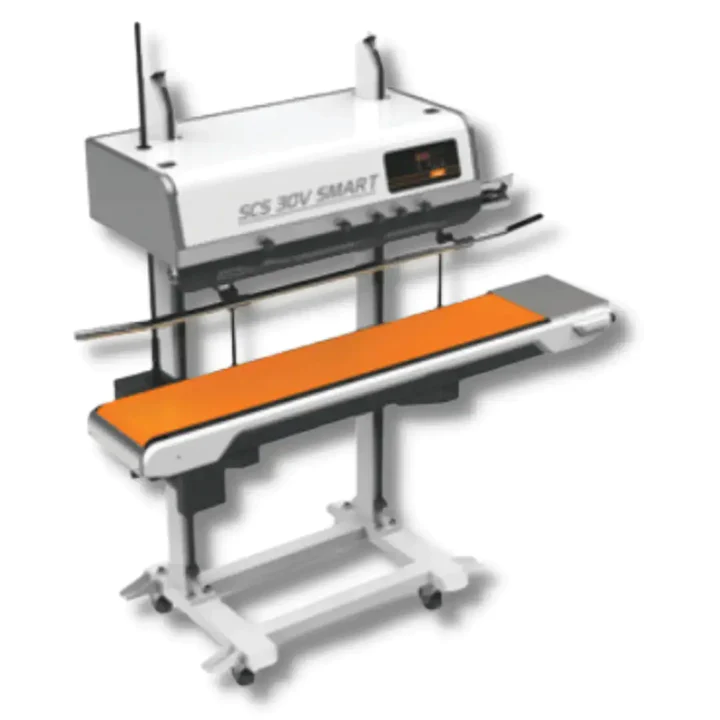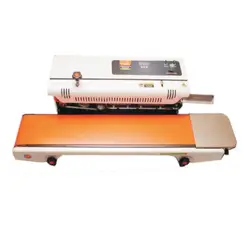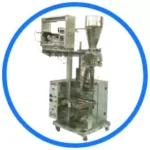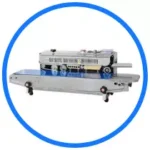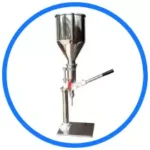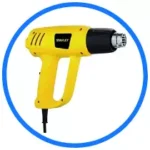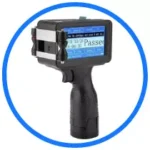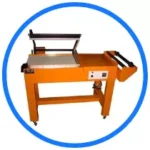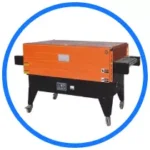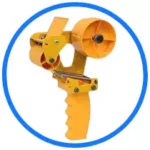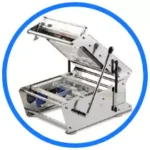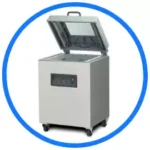BATCH CODING
4-Inch Screen Online Thermal Inkjet Printer INMD0M 12.7mm, with Syahi Premium Black Ink Cartridge
Domino Continuous Inkjet Printing Machine Ax150i
Domino Thermal Inkjet Coder PE-GX 150i
Handheld Portable Inkjet Batch Coding Machine INMD6M with Syahi Black Ink Cartridge
Indian Inkjet Coding Conveyor 300mm (12-inch) Heavy Duty Printing Conveyor CIM300
Inkjet Coding Conveyor 300mm (12-inch) Printing Conveyor CCM300
Inkjet Conveyor 200mm (8-inch) Printing Conveyor CCM200
Online Inkjet Printer INMD0M 12.7mm, 4-Inch Touch Screen with Syahi Black Ink Cartridge
Portable Handheld Inkjet Coding Machine INMD3M with Syahi Black Ink Cartridge
Portable Inkjet Machine Heavy Duty with Syahi Premium Ink Cartridge
Portable Thermal Inkjet MRP Printing Machine INMD6M Hi-Res with Syahi Premium Black
Syahi Ink Cartridge for Online/Hand Held Inkjet Coder
What is a Batch Coding Machine?
A batch coding machine is a tool used in factories and packaging units to print important information on products. This information can include the batch number, MRP (maximum retail price), expiry date, manufacturing date, barcode, or QR code. If you have ever looked closely at a packet of chips, a bottle of medicine, or a juice container, you will see small printed details like “MFD: 12/2024” or “Batch No: 2385A.” That is the work of a batch coding machine.
This machine helps businesses stay compliant with packaging laws and ensures that products carry all the necessary information before they reach customers. These machines can print on materials like plastic, glass, cardboard, pouches, metal, and labels. Whether your business is small or large, a batch coding machine is essential if you sell packaged goods.
Why Do Businesses Need a Batch Coding Machine?
If you manufacture or package products, especially in industries like food, beverages, pharmaceuticals, cosmetics, electrical goods, or chemicals, it is mandatory to print specific information on the product before selling or distributing it. Without a batch coding machine, doing this work by hand becomes slow, inconsistent, and error-prone.
Here are the main reasons why businesses need a batch coding machine:
-
It saves time by printing automatically on multiple products.
-
It ensures that the information is clear and easy to read.
-
It reduces the chances of human errors in stamping or labeling.
-
It keeps you compliant with government regulations.
-
It builds trust with customers who expect clean, accurate product labeling.
What Happens Without a Batch Coder?
Businesses that don’t use batch coding machines often face serious issues. Some of these include:
-
Breaking packaging and labeling laws, which can lead to penalties.
-
Difficulty in tracking products in case of returns or recalls.
-
Customer complaints due to missing expiry or MRP information.
-
Wasted time and money in manually stamping or labeling.
-
Slower production output, affecting overall business growth.
In contrast, when a batch coding machine is added to your production line, you increase speed, accuracy, and reliability—all critical for business success.
Types of Batch Coding Machines
There is no single type of batch coding machine for all businesses. Different machines are used based on budget, production volume, surface material, and type of product. Here are the most commonly used batch coding machines:
Manual Batch Coding Machine
A manual batch coder is a simple, low-cost machine that is operated by hand. It is ideal for small businesses that handle limited packaging work per day. You press the machine on the surface of the pouch, label, or box to print the batch details. These machines are commonly used by home-based or early-stage businesses.
Ribbon Batch Coder
This machine uses colored thermal ribbon to print information on flexible packaging, especially pouches, wrappers, and labels. It offers better printing quality than manual methods and is suitable for small to medium-sized businesses. Ribbon coders are widely used in the food and cosmetics industry.
Inkjet Batch Coding Machine
Inkjet coders spray ink onto the surface of the product without touching it. These machines can print at high speed and with high clarity. They are used for printing on boxes, cartons, bottles, wires, cables, and other curved or flat surfaces. They are reliable and versatile, making them a favorite in fast-paced production environments.
Thermal Transfer Overprinter (TTO) and Continuous Inkjet (CIJ)
TTO and CIJ are advanced batch coding technologies designed for high-speed, high-volume production lines. Both offer fast, high-resolution printing suitable for industries like food, pharmaceuticals, and cosmetics.
TTO (Thermal Transfer Overprinter) uses a thermal printhead and ribbon to create sharp, durable prints on flexible packaging materials such as pouches, sachets, and films. It is ideal for printing barcodes, dates, and graphics with high clarity on flat surfaces.
CIJ (Continuous Inkjet) sprays tiny droplets of ink onto moving products without contact. It’s highly effective for printing on curved or uneven surfaces like bottles, wires, cans, and cartons. CIJ works well on a wide range of materials including glass, plastic, metal, and foil.
CO2 Laser Batch Coding Machine
Laser coding uses a beam of light to etch or mark the required information onto the product surface. It does not require ink or ribbons, making it more eco-friendly and cost-effective in the long run. CO2 laser coders are used in industries where permanent marking is essential, such as pharmaceuticals, electronics, and FMCG goods.
Where Can a Batch Coding Machine Be Used?
Batch coding machines are used in almost every industry that packages physical goods. They can be adjusted to print on various packaging materials such as plastic, paper, glass, metal, film, and more.
Here are some common use cases:
-
On flexible pouches in the food industry
-
On medicine boxes and bottles in the pharmaceutical industry
-
On juice bottles, oil bottles, and containers in the beverage industry
-
On electronic parts, wires, and switches in the electrical industry
-
On cardboard cartons and shipping boxes
-
On labels or tags used in retail packaging
Batch Coding Machines for Small Businesses
One of the common myths is that batch coding machines are only meant for large factories. That’s not true. Many small and home-based businesses also use batch coding machines to save time, maintain quality, and comply with packaging laws.
If you're just starting out, you can begin with a manual or ribbon coder, which is affordable and easy to use. As your orders increase, you can upgrade to semi-automatic or fully automatic machines like TIJ, CIJ, or laser coders. The investment pays off quickly when you consider how much time and effort you save daily.
A good machine also improves your brand's professional image. Your packaging looks neat, and your product appears more trustworthy to customers.
How to Choose the Right Batch Coding Machine
Every business has different needs. When selecting a batch coding machine, consider the following factors:
Type of Surface
What kind of material are you printing on—plastic, paper, metal, or foil? Different machines work better on different materials.
Production Speed
How many products do you need to code in an hour? Choose a machine that can match or exceed your production rate.
Print Content
Do you only need to print batch numbers and dates? Or do you also want to print barcodes, QR codes, and logos?
Budget
Manual coders are cheaper, but they are slow. Inkjet and laser machines cost more but offer better speed and print quality. Consider long-term savings as well.
Ease of Use
If your team is small, you’ll want a machine that’s easy to operate and maintain.
Features You Should Look For
Here are some essential features that make a batch coding machine worth investing in:
-
High print speed without compromising clarity
-
Support for various packaging materials
-
Low running costs (ink, ribbon, or maintenance)
-
Easy-to-use interface or controls
-
Compact size for smaller production units
-
Built-in memory for storing multiple print formats
Why Buy from Packerials?
At Packerials, we specialize in packaging machinery built for Indian businesses. We offer a full range of batch coding machines, from basic manual coders to high-end inkjet and laser printers.
Here’s what you get when you choose Packerials:
-
Machines tested with real Indian packaging samples
-
Affordable options for small and large businesses
-
On-site setup, training, and demonstration
-
After-sales support and availability of spare parts
-
Consultation to help you choose the right machine
Whether you're running a home-based food business or a growing factory, we can recommend a model that fits your budget and speed.
Frequently Asked Questions
Q: Can I use the machine to print on plastic pouches?
Yes. Ribbon coders and TIJ printers are perfect for printing on pouches.
Q: What is the best option for bottles?
Inkjet batch coding machines work best on bottles because they can print without touching the surface.
Q: Is the machine hard to operate?
Not at all. Most machines are easy to use and can be operated after just a short training session.
Q: Which is the most affordable batch coder?
Manual coders and ribbon coders are the most budget-friendly for small-scale production.
Q: Do I need regular maintenance?
Most machines are low-maintenance, especially inkjet and laser models, but regular cleaning and inspection help keep them running smoothly.
